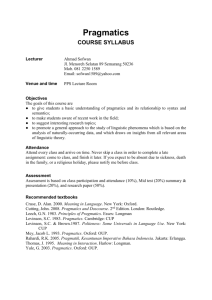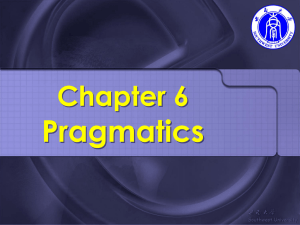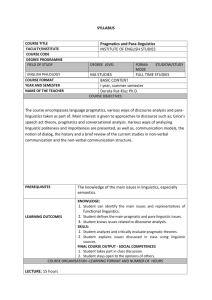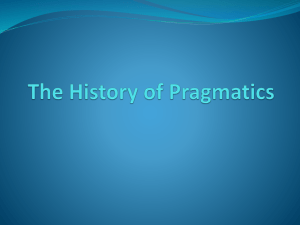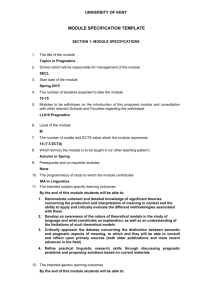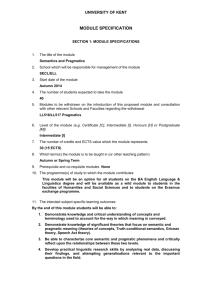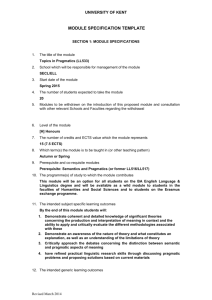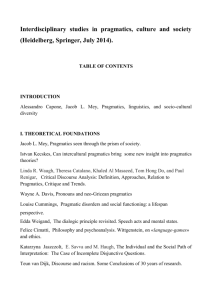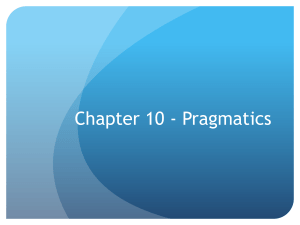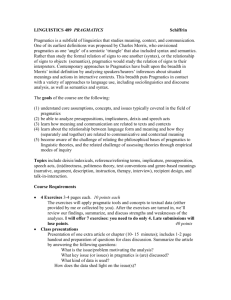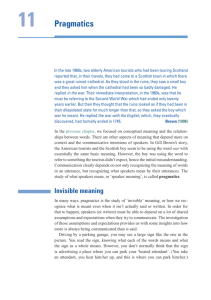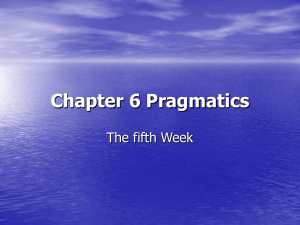Pragmatics
advertisement
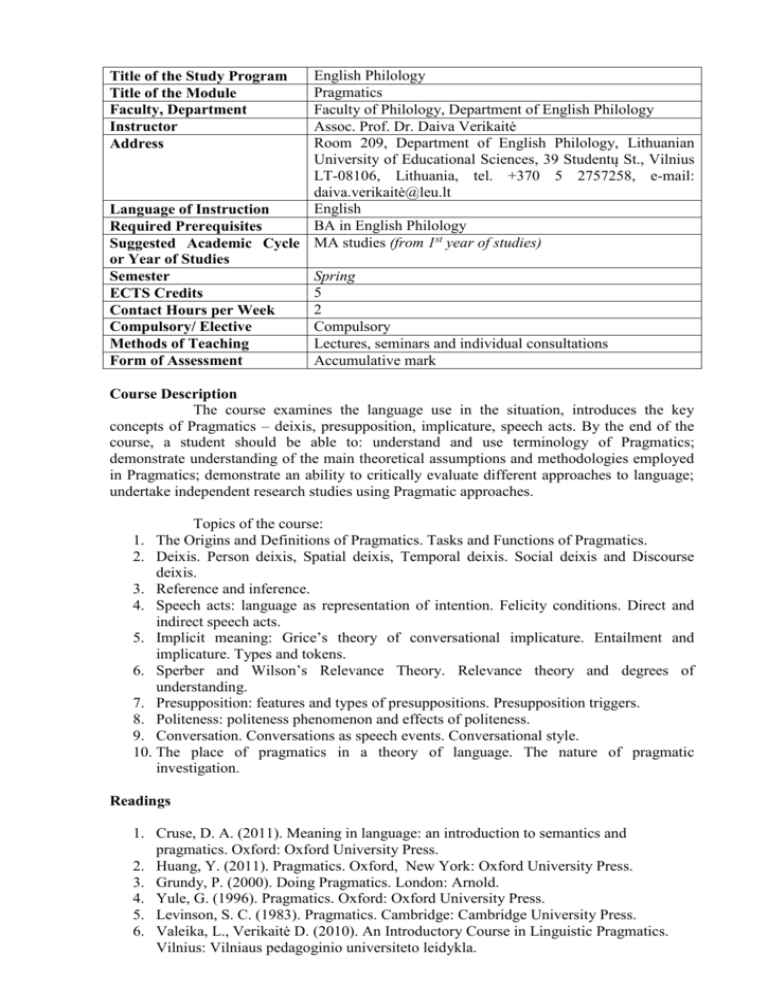
English Philology Pragmatics Faculty of Philology, Department of English Philology Assoc. Prof. Dr. Daiva Verikaitė Room 209, Department of English Philology, Lithuanian University of Educational Sciences, 39 Studentų St., Vilnius LT-08106, Lithuania, tel. +370 5 2757258, e-mail: daiva.verikaitė@leu.lt English Language of Instruction BA in English Philology Required Prerequisites Suggested Academic Cycle MA studies (from 1st year of studies) or Year of Studies Spring Semester 5 ECTS Credits 2 Contact Hours per Week Compulsory Compulsory/ Elective Lectures, seminars and individual consultations Methods of Teaching Accumulative mark Form of Assessment Title of the Study Program Title of the Module Faculty, Department Instructor Address Course Description The course examines the language use in the situation, introduces the key concepts of Pragmatics – deixis, presupposition, implicature, speech acts. By the end of the course, a student should be able to: understand and use terminology of Pragmatics; demonstrate understanding of the main theoretical assumptions and methodologies employed in Pragmatics; demonstrate an ability to critically evaluate different approaches to language; undertake independent research studies using Pragmatic approaches. Topics of the course: 1. The Origins and Definitions of Pragmatics. Tasks and Functions of Pragmatics. 2. Deixis. Person deixis, Spatial deixis, Temporal deixis. Social deixis and Discourse deixis. 3. Reference and inference. 4. Speech acts: language as representation of intention. Felicity conditions. Direct and indirect speech acts. 5. Implicit meaning: Grice’s theory of conversational implicature. Entailment and implicature. Types and tokens. 6. Sperber and Wilson’s Relevance Theory. Relevance theory and degrees of understanding. 7. Presupposition: features and types of presuppositions. Presupposition triggers. 8. Politeness: politeness phenomenon and effects of politeness. 9. Conversation. Conversations as speech events. Conversational style. 10. The place of pragmatics in a theory of language. The nature of pragmatic investigation. Readings 1. Cruse, D. A. (2011). Meaning in language: an introduction to semantics and pragmatics. Oxford: Oxford University Press. 2. Huang, Y. (2011). Pragmatics. Oxford, New York: Oxford University Press. 3. Grundy, P. (2000). Doing Pragmatics. London: Arnold. 4. Yule, G. (1996). Pragmatics. Oxford: Oxford University Press. 5. Levinson, S. C. (1983). Pragmatics. Cambridge: Cambridge University Press. 6. Valeika, L., Verikaitė D. (2010). An Introductory Course in Linguistic Pragmatics. Vilnius: Vilniaus pedagoginio universiteto leidykla.
